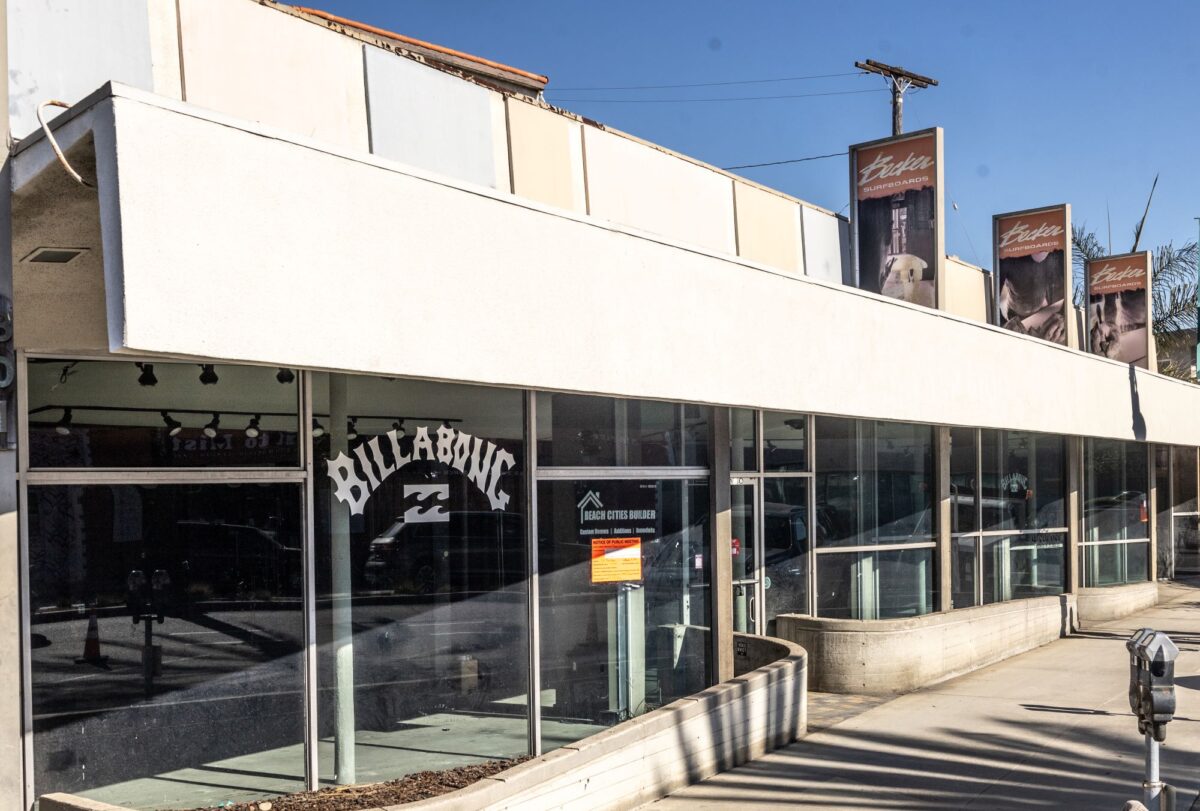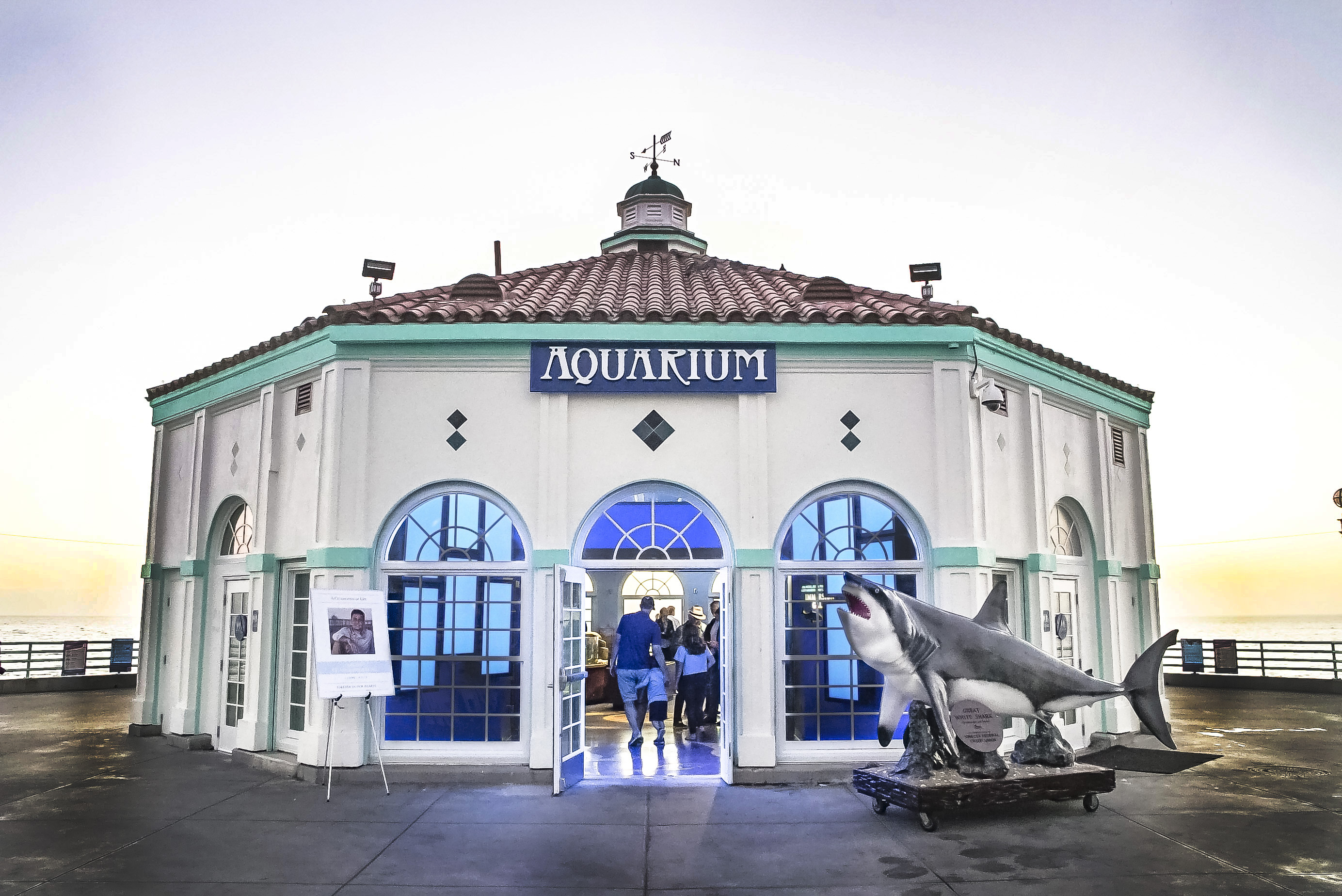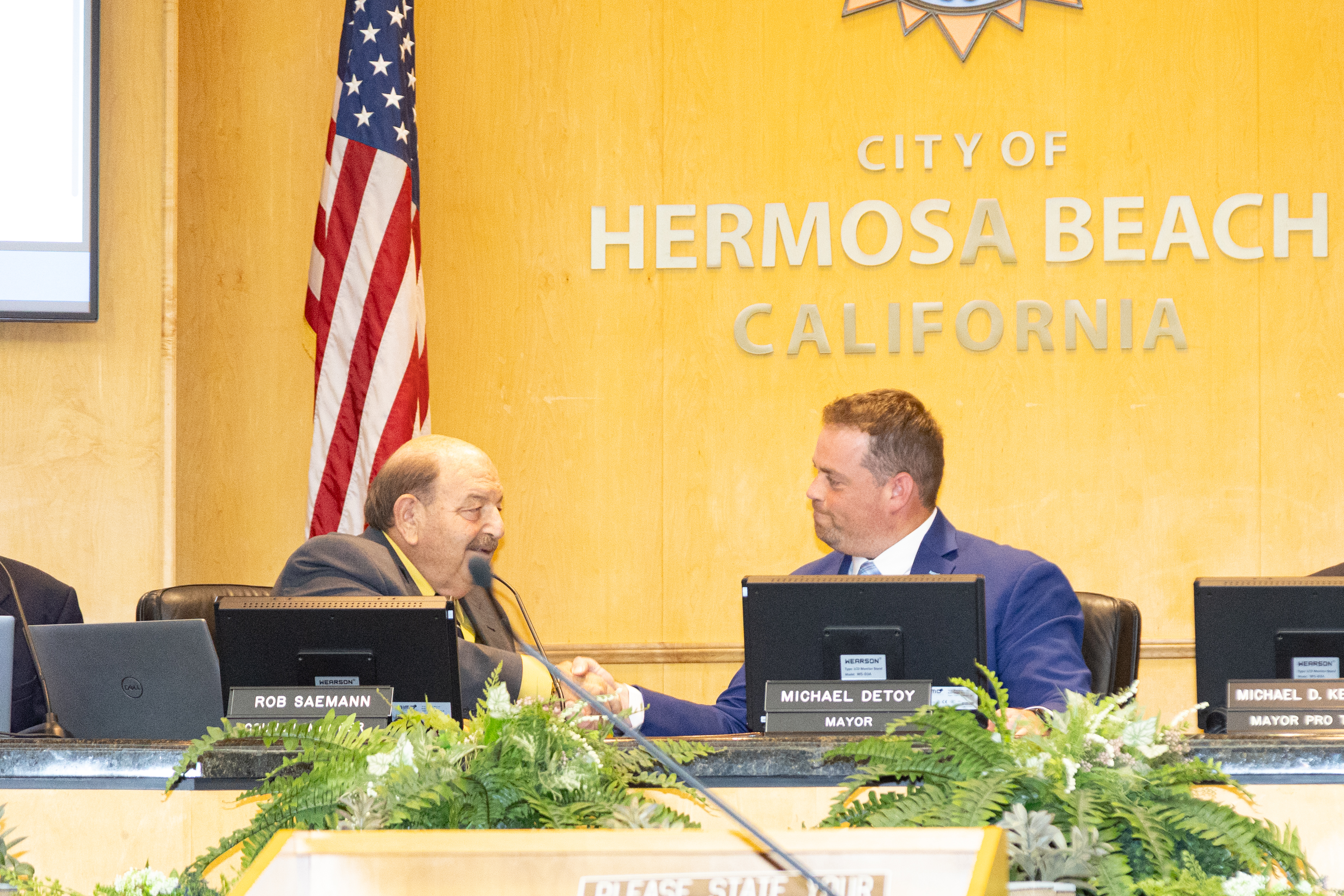by Kevin Cody
Don English asked the Hermosa Beach Planning Commission, Monday night, August 18, to waive a city-imposed requirement he install solar panels, and an elevator at the 5,292 sq.ft. building his family owns at Pier Avenue and Monterrey Boulevard. The building has been vacant since longtime tenant Becker Surf closed two years ago.
English, speaking on behalf of his family, which has owned the building since 1959, told the commission the solar panels would cost $57,000 to install, and the elevator was not necessary.
“Have you ever been in a one story building with an elevator?” English asked the commissioners.
According to the Community Development staff report, the elevator is required by ADA for handicap access from the building to the handicap parking on the store’s lot behind the building.
The building is built into the side of the Pier Avenue sand dune, which offers geothermal cooling, making the solar panels unnecessary, English noted. But the site’s configuration also means the parking lot is on a grade above the building.
The Planning Commission was unanimous in agreeing to waive the solar panel requirement.
But it did not waive the elevator requirement because, according to the staff report, ADA requirements are “to be implemented via the building department, and are outside of the Commission’s purview.”
(The Community Development Department, which prepared the report, could not be reached for comment on this story by press time.)
“I know it’s not within your jurisdiction,” English told the commission, “but perhaps you could nudge staff to find a solution other than an elevator.
“I fear we will lose the tenants if we lose square footage to the elevator, and have to pay for it. The ‘For Rent’ signs will be back up on the building,” he said
The two tenants are a Pilates studio, with stationary bikes and rowing machines; and a physical therapy recovery studio, which is to include cold water immersion, compression and hyperbaric treatments.
English noted city approval for the proposed tenant improvements, so far, have taken him 17 months.
He said he turned away numerous prospective tenants, including beer halls, coffee bars, and nail and hair salons “so we could provide something Hermosa doesn’t already have.”
“Before Becker, we had five 1,000 sq. ft. tenants — a laundromat, a travel agency, a little boutique, and two insurance agencies, including my dad’s. I wouldn’t be in front of you tonight if we went back to that because there’s no solar or elevator requirement for businesses under 1,500 feet,” English said.
In addressing the ADA requirement for an elevator, English said, “The building has been there since 1959 and we had zero complaints from handicapped people.”
He said the public sidewalk on the west side of the building serves as a handicap ramp from the parking lot to the front of the building.
Acting Community Development Director Alexis Oropeza told the commission the sidewalk did not meet the ADA access requirement because it is on public property.
Planning Commissioner Pete Hoffman said, in agreeing to waive the solar panel requirement, “Requiring solar would be a good incentive to tear down the building. I don’t think that’s the code’s intention. God forbid somebody consolidates the rest of upper Pier Avenue, and we applied these requirements,” he said.
“I’m not opposed to new construction incorporating appropriate solar technology, but I’m not sure retrofitting a buildings of this size to accommodate two new tenants meets the threshold for solar retrofitting,” Hoffman added.
Hoffman also expressed concern that the permitting process has taken nearly two years.
“That year and a half cost people money. People talk about Hermosa Beach being unfriendly to business. I’m not one of those. But here’s the kind of thing that prompts that sort of rhetoric,” he said.
Planning Commissioner Mike Flaherty suggested relocating the handicap parking from behind the building to the metered spaces in front of the building.
Oropeza responded, “Satisfying parking requirements in the public right-of-way was addressed by the council. There was a general direction to staff five or six months ago, not in this context… in the residential context, to get away from that practice.”
Flaherty, a former Hermosa Public Works foreman, responded he generally agrees with the council direction, but added, “Public works puts in handicapped spots throughout this city on public rights of way for private use. I started that program 30 years ago. Since the commission doesn’t have the authority to do that, I suggest staff have this discussion with the Public Works Department.”
Commissioner Hoffman said he agreed with Flaherty.
“If there’s a handicap person living in the city, we put in handicap spaces for them. We work with restaurants to take over two or three parking places to put in dining decks…. We try to be reasonable with people and pro business,” Hoffman said. ER








